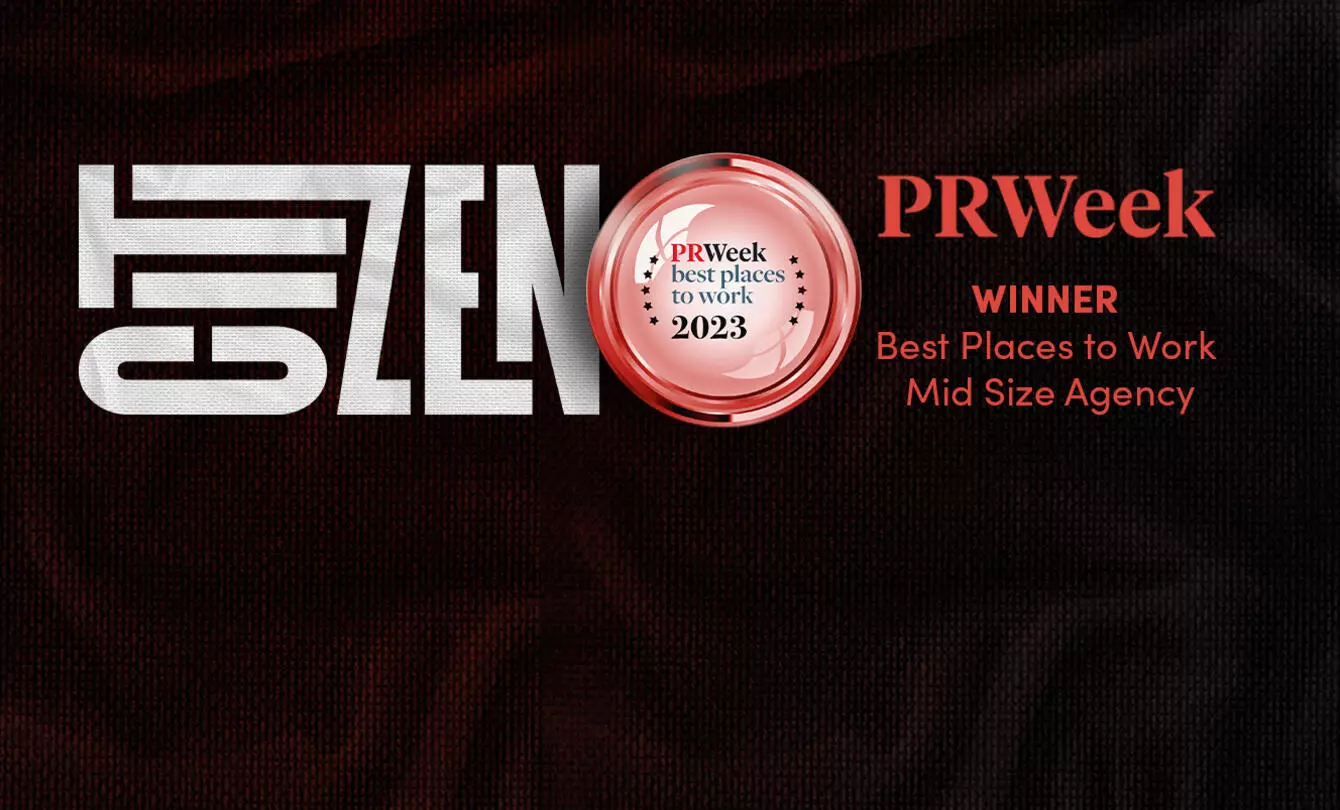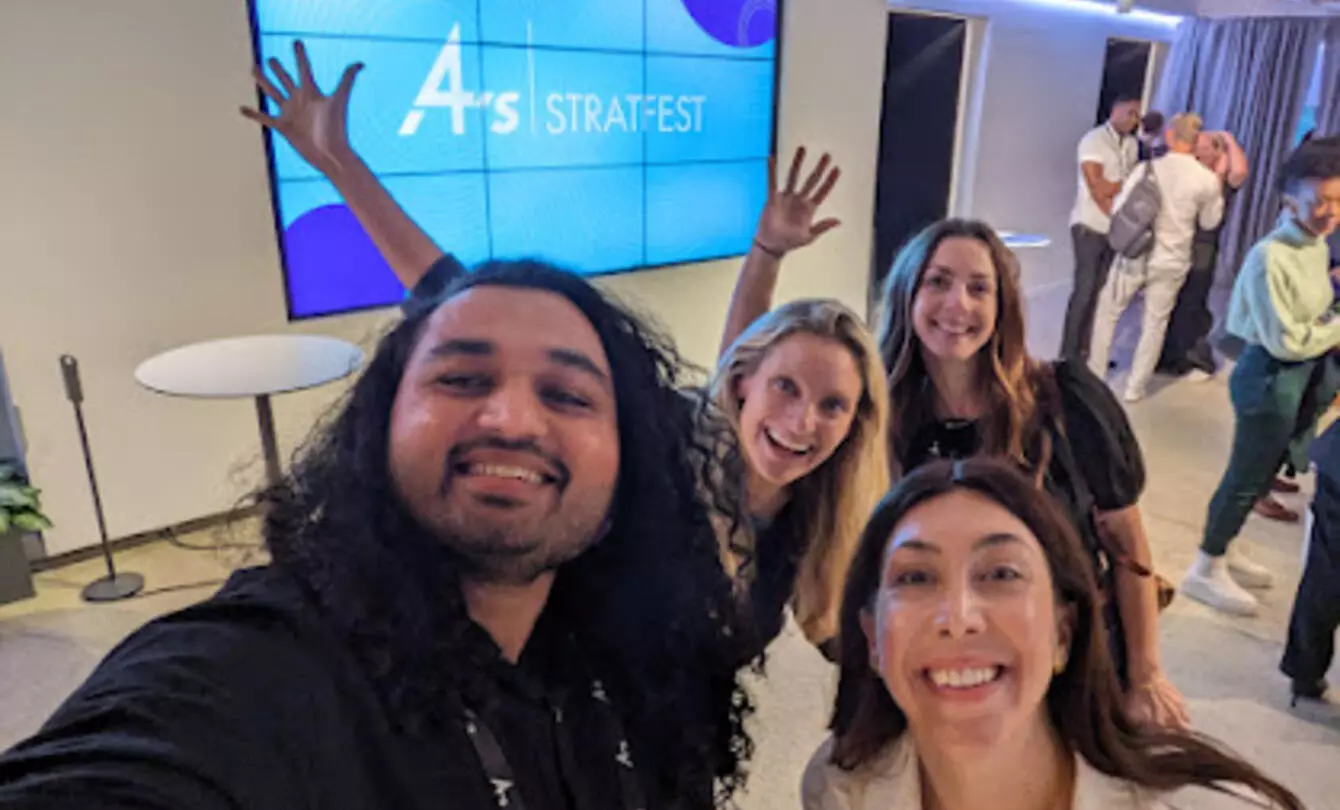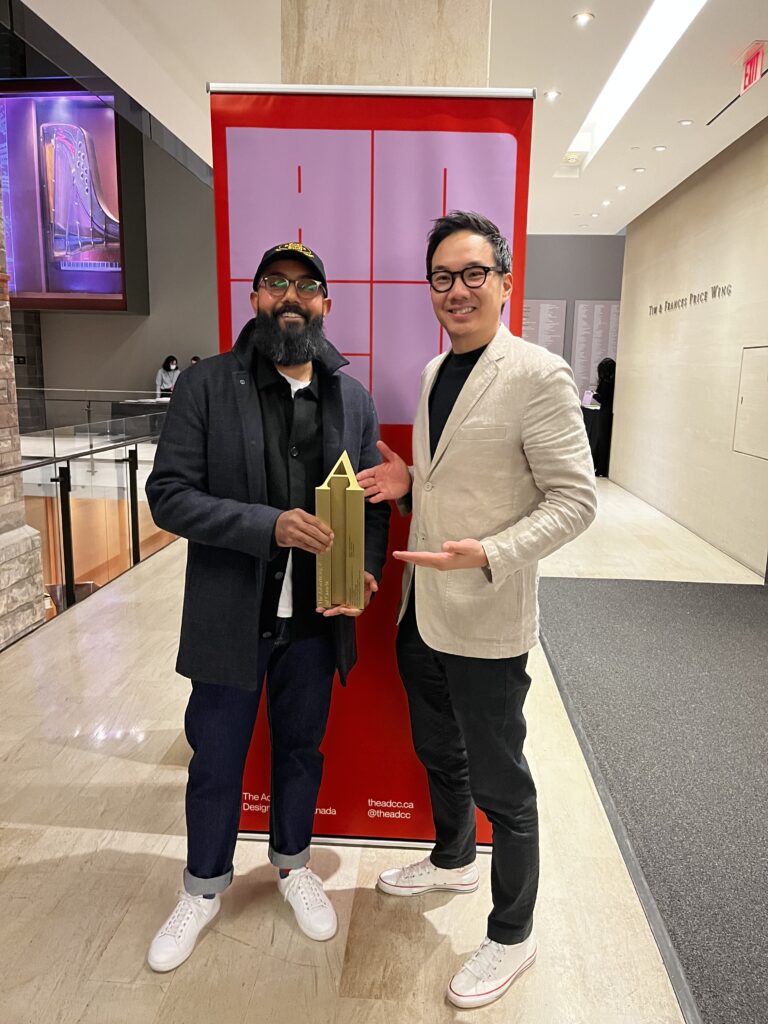Bienvenue dans l’édition spéciale Connexions de notre infolettre En Bref par Citoyen, un tour d’horizon mensuel des conversations qui comptent. Ce mois-ci, suite à la publication de notre premier rapport Citoyen annuel sur les connexions, nous vous proposons une réflexion approfondie sur la récente « crise des connexions » qui a fait la une des journaux du monde entier.
Combler le déficit de connexion

Il est évident que notre monde traverse actuellement une crise de la connexion. Partout dans le monde, nous entendons parler de la solitude comme d’une épidémie et du plus grand défi de santé publique de notre époque. Mais comment les spécialistes du marketing peuvent-ils jouer un rôle dans la résolution de cette crise et pourquoi devraient-ils s’en préoccuper ?
Au début du mois, Citoyen a lancé son premier rapport sur les connexions, en interrogeant plus de 3 000 consommateurs aux États-Unis, au Royaume-Uni et au Canada pour comprendre comment ils se connectent entre eux, avec la société et avec eux-mêmes. Une chose qu’ils appellent le « déficit de connexion » est apparue de manière flagrante :
Presque partout, les gens aspirent à plus de connexion, mais ils se retiennent.
Cela se résume à trois choses :
- Interaction sociale sélective : Après la pandémie, 74 % des personnes sont devenues plus sélectives quant à leurs cercles sociaux.
- L’équilibre en ligne et hors ligne : Si 78 % des personnes interrogées préfèrent les interactions en personne pour améliorer la communication et la camaraderie, un quart d’entre elles apprécient également les connexions en ligne en raison de leur commodité et de leur spécificité.
- Défis en matière de santé mentale : La santé mentale n’est pas seulement le premier obstacle à la connexion sociale, c’est aussi le premier problème auquel les gens veulent que les marques et les organisations s’attaquent.
Les consommateurs attendent également des marques qu’elles s’attaquent à ce « déficit de connexion » – près de 90 % des personnes interrogées attendent des marques qu’elles s’attaquent à au moins un problème de société et qu’elles provoquent des changements. Citoyen a donc défini un nouveau mandat pour les marques afin de les aider à s’attaquer au problème de la connexion sociale. Pour en savoir plus, consultez le rapport complet de Citoyen ici.
L’OMS s’est exprimée

Il y a quelques semaines, l’Organisation mondiale de la santé (OMS) a enfin déclaré que l' »épidémie de solitude » était une priorité mondiale en matière de santé et a lancé une nouvelle commission sur les connexions sociales. L’objectif de cette commission est d’élaborer des stratégies pour aider les gens à renforcer leurs liens sociaux au cours des trois prochaines années.
Cette annonce fait suite à des recherches approfondies menées par le Dr Vikram Murthy, administrateur de la santé publique des États-Unis, sur l’impact de la solitude sur la santé mentale et physique. Il semble que la santé mentale et la déconnexion sociale aillent de pair. Alors que le Dr Murthy affirme que la déconnexion sociale est à l’origine de la crise de la santé mentale aux États-Unis, le premier rapport de Citoyen sur les connexions a également révélé que la santé mentale constitue le plus grand obstacle à la connexion sociale. En fait, il s’agit du problème numéro un pour les consommateurs du monde entier, qui souhaitent que les marques se mobilisent davantage.
L’impact sur la santé physique devient de plus en plus évident, une étude estimant que cela équivaut à fumer 15 cigarettes par jour. Les recherches montrent que la solitude et l’isolement social peuvent entraîner une mauvaise santé immunitaire et des maladies cardiovasculaires. Elles peuvent également entraîner un déclin cognitif et contribuer à l’augmentation des cas de démence.
Aussi sombre que cela puisse paraître, tout espoir n’est pas perdu. Au cours des trois prochaines années, la Commission entend non seulement sensibiliser le public à l’isolement social, mais aussi collaborer avec des personnalités clés des gouvernements et du secteur privé pour s’attaquer au problème. Cependant, la responsabilité ne repose pas uniquement sur eux. Dans tous les secteurs d’activité, les organisations peuvent jouer un rôle dans l’établissement de liens plus étroits au sein de la société. Les marques, par exemple, peuvent laisser cet objectif guider leur campagne et, par conséquent, susciter le changement. Pour savoir ce que les marques peuvent faire de plus, consultez le rapport 2023 de Citoyen sur les connexions ici.
La ville la plus solitaire

L’épidémie de solitude est devenue un phénomène mondial. Mais ce qui est ironique, c’est que même les villes les plus densément peuplées sont confrontées à cette crise de la connexion. Un nouveau rapport de la Toronto Foundation suggère que Toronto pourrait bien être la ville la plus solitaire du Canada. L’ironie, cependant, c’est qu’avec 6,6 millions de personnes vivant dans la ville, c’est aussi la plus peuplée.
Que se passe-t-il alors ? Selon l’étude, près de quatre Torontois sur dix déclarent se sentir seuls trois à quatre jours par semaine, ce qui est plus élevé que dans n’importe quelle autre ville du pays. Compte tenu de l’état de la solitude et des liens sociaux dans un monde post-pandémique, ce n’est pas une surprise. Et même si nous vivons dans un monde post-pandémique, l’impact de la Covid-19 reste profond.
Avant la pandémie, les Torontois déclaraient avoir beaucoup plus d’amitiés et de relations qu’aujourd’hui. En 2018, 55 % des personnes interrogées ont déclaré avoir beaucoup ou très beaucoup d’amis ; ce chiffre a chuté à 44 % lors de l’enquête la plus récente, en 2022. La solitude n’est pas la même chose que le fait d’être seul, ce qui explique le décalage que les habitants de la ville ressentent par rapport à leur communauté au sens large.
Le rapport aborde également les facteurs de santé mentale, le stress lié au travail et l’accessibilité financière de la ville étant les principales préoccupations de plus de 50 % des Torontois. L’immigration étant en constante augmentation, l’enquête a montré que 17 % des personnes interrogées vivent dans des logements surpeuplés, un tiers d’entre elles étant des nouveaux arrivants. Compte tenu de tous ces facteurs, les gens finissent par s’isoler de plus en plus.
Le rapport de Citoyen sur les connexions a révélé un autre facteur à l’origine de cet isolement : la polarisation. Environ 80 % des personnes interrogées déclarent avoir été touchées par la polarisation, qui a encore réduit les cercles sociaux. En conséquence, les gens ont perdu la capacité d’avoir des conversations ouvertes avec des personnes qui ne pensent pas de la même manière. Découvrez comment les marques peuvent intervenir pour encourager les gens à s’écouter les uns les autres et à laisser la conversation se dérouler librement – dans le respect et sans jugement – dans notre rapport.
Ralentir la cadence

Avec tous les gros titres sur l’épidémie de solitude et l’augmentation de l’isolement, on peut avoir l’impression qu’il n’y a pas de finalité en vue. Mais tout n’est pas si sombre. Les entreprises ont remarqué cette augmentation de l’isolement et ont déjà commencé à la combattre, à leur manière.
La chaîne néerlandaise de magasins d’alimentation Jumbo a mis en place des « caisses pour bavardage » dans ses magasins peu avant la pandémie. L’idée vient de la « file relax » que Tesco, la chaîne de magasins d’alimentation britannique, a introduite en 2017 pour les clients qui ont besoin d’un peu plus de temps.
L’introduction par Jumbo de ces caisses n’est toutefois que l’une des nombreuses initiatives visant à encourager les clients à discuter et à réduire la solitude. La chaîne de magasins d’alimentation a également mis en place des coins de discussion dans les magasins où les clients peuvent s’arrêter pour prendre un café et avoir l’occasion d’entrer en contact avec leur communauté et leurs voisins.
Cette connexion est également encouragée sur les plateformes en ligne. L’application de rencontres Bumble a récemment lancé Bumble pour meilleurs amis (BFF), qui permet aux utilisateurs de se connecter avec des personnes partageant les mêmes centres d’intérêt afin de nouer des amitiés autour de centres d’intérêt similaires.
Ces petits pas sont parfois tout ce qu’il faut pour faire la différence et favoriser l’établissement de liens plus profonds. C’est également un moyen facile pour les marques d’aborder une question sociale et d’apporter un changement ; le rapport de Citoyen sur les connexions a révélé que près de 90 % des personnes interrogées souhaitent que les marques prennent position sur une question sociétale.
L’un des moyens d’y parvenir, et de s’attaquer à la question des liens sociaux, consiste à trouver ces liens faibles et à les entretenir. L’art de la conversation s’est perdu et les marques peuvent facilement le rétablir en trouvant ces moments et en étant intentionnels dans la manière dont nous les passons.
Rejoignez-nous en direct le 7 décembre !

Il est clair que le monde n’a jamais été confronté à une crise de la connexion aussi importante qu’aujourd’hui. Qu’il s’agisse du ministre britannique de la solitude, qui la considère comme le plus grand défi de santé publique, ou du fait qu’environ 45 000 décès au Canada sont attribués à la solitude, les chiffres parlent d’eux-mêmes. Et bien que la Covid-19 ait certainement contribué à cette situation, la conversation sur le fait d’être moins connecté socialement dans un contexte d’épidémie de solitude, de montée de la polarisation et de dépendance croissante à l’égard de la technologie a imprégné les discussions à travers notre tissu social bien avant l’arrivée d’une pandémie mondiale.
Les responsables du marketing et de la communication disposent aujourd’hui de la plateforme, du pouvoir et de la responsabilité nécessaires pour s’attaquer à la crise actuelle de la connexion sociale et changer la donne. Suite à la récente publication du rapport de Citoyen sur les connexions, rejoignez Lindsay Page, vice-présidente sénior de la stratégie chez Citoyen, et Susan McPherson, experte en responsabilité d’entreprise et auteure de « The Lost Art of Connecting », pour analyser les causes du « déficit de connexion » actuel et les nouvelles opportunités qui s’offrent aux marques et aux organisations pour le combler.
Participez à la conversation LinkedIn en direct le 7 décembre prochain à midi (HNE). Inscrivez-vous ici.


















